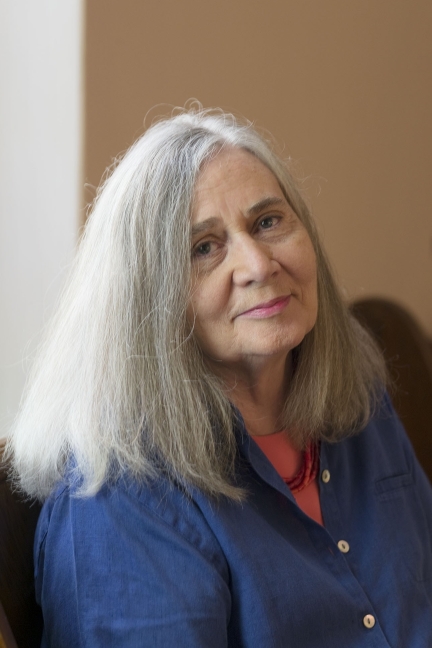Growing up with a taciturn father temperamentally disinclined to speak, Marilynne Robinson chose to express herself through her writing. It led her to become a Pulitzer Prize-winning author who has written a plethora of fiction and nonfiction related to ideology, culture, politics, and to deliver a series of lectures at Yale University in 2009 addressing the debate between science and religion.
Robinson will be giving her lecture, “Let There Be, and There Is: Creation and Reality,” at 2 p.m. Monday, July 18, in the Hall of Philosophy to start off Week Four of the Interfaith Lecture Series theme “The Future of Being.”
Director of Religion Maureen Rovegno said the department’s request of Week Four’s lecturers is to take Chautauqua on a speculative journey of present and future realities.

“In this week, we ponder how our understanding of ‘being’ — both human and divine — might also evolve to reveal more consciously a new experience of what we now simply call ‘life,’ ” Rovegno said. “Marilynne is uniquely positioned, by her own life journey, to begin to lead us on our journey through this week.”
Robinson’s writing journey developed while she was an undergraduate at Brown University and continued as she completed her doctoral work at the University of Washington. Her nonfiction work allows readers to gain a sense of what their role is as human beings in the greater cosmic sense.
“I’m talking about science and religion, about the fact that they’ve been treated as being things that are necessarily opposed,” Robinson said. “I think that’s a big mistake and has been damaging to both of them and to civilization; (it) sort of turned into an adversarial situation where that was not fruitful.”
Both science and religion depend on each other, she said, and thinking otherwise impoverishes both sides of the conversation.
“The idea (is) that we’re all here in a way of trying to understand what we see and what we experience and so on,” Robinson said. “This can be interpreted as having religious meaning; it can also be interpreted in the terms of science. What human beings are is something that religion has dealt with endlessly and science does also with its various anthropologies.”
Modern physics, mathematics and anything in the realm of STEM have opened up the idea of what being consists of, Robinson said.
“I think there are ways in which the covetousness, the fact of complexities, underlies what is apparently true,” Robinson said. “These are things that ancient thought responds to more gracefully, and more fruitfully in many cases, than science or religion has done in the modern period.”
Her interest is piqued by how intertwined science and religion are.
“Science has given us so much to know and to absorb about what being is, more than Galileo could have dreamed of and yet, it seems to have almost no effect on our culture, including religious thought,” Robinson said.
She hopes her audience will think about these achievements of modern science. “I hope they will reconsider the idea that science and religion are necessarily at odds,” Robinson said. “I hope it has given people some things to think about that are worth their time and attention.”




